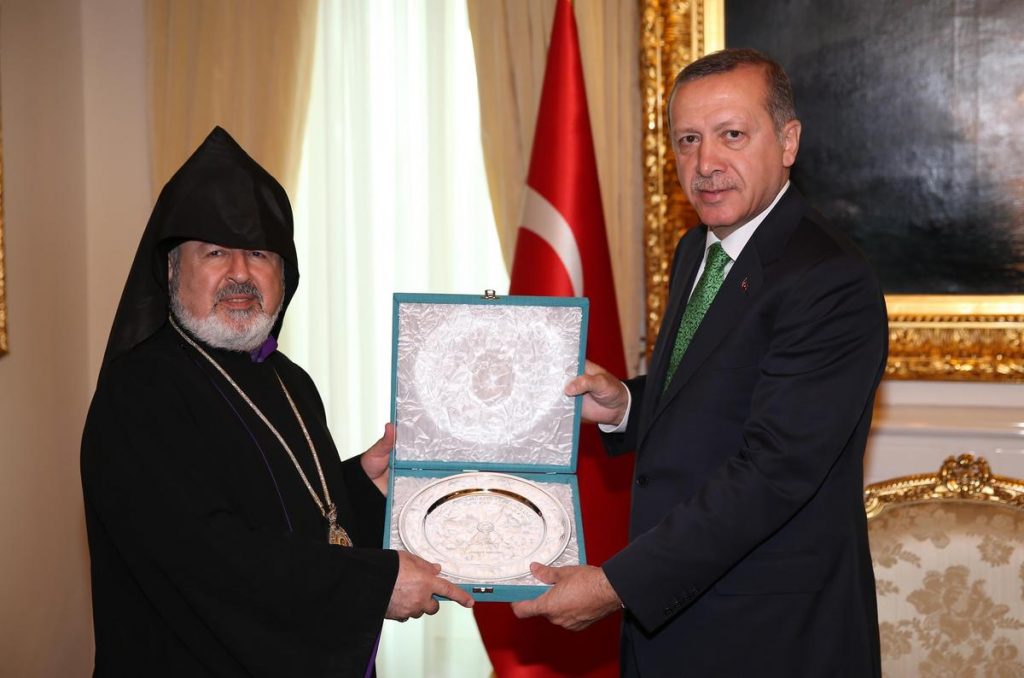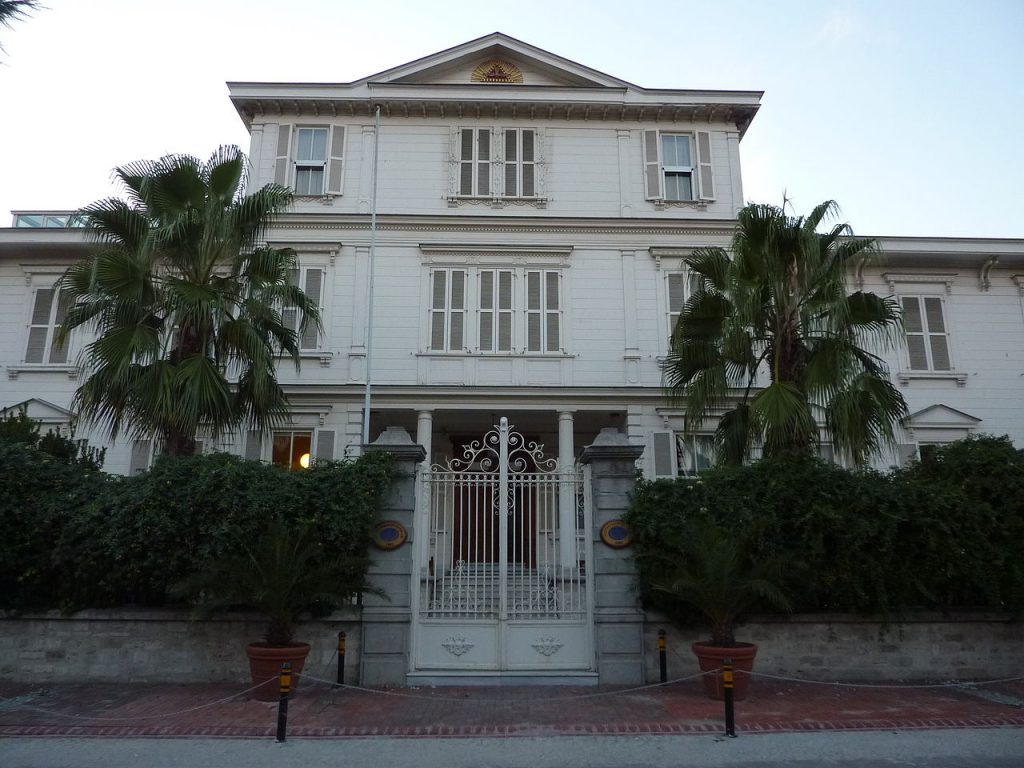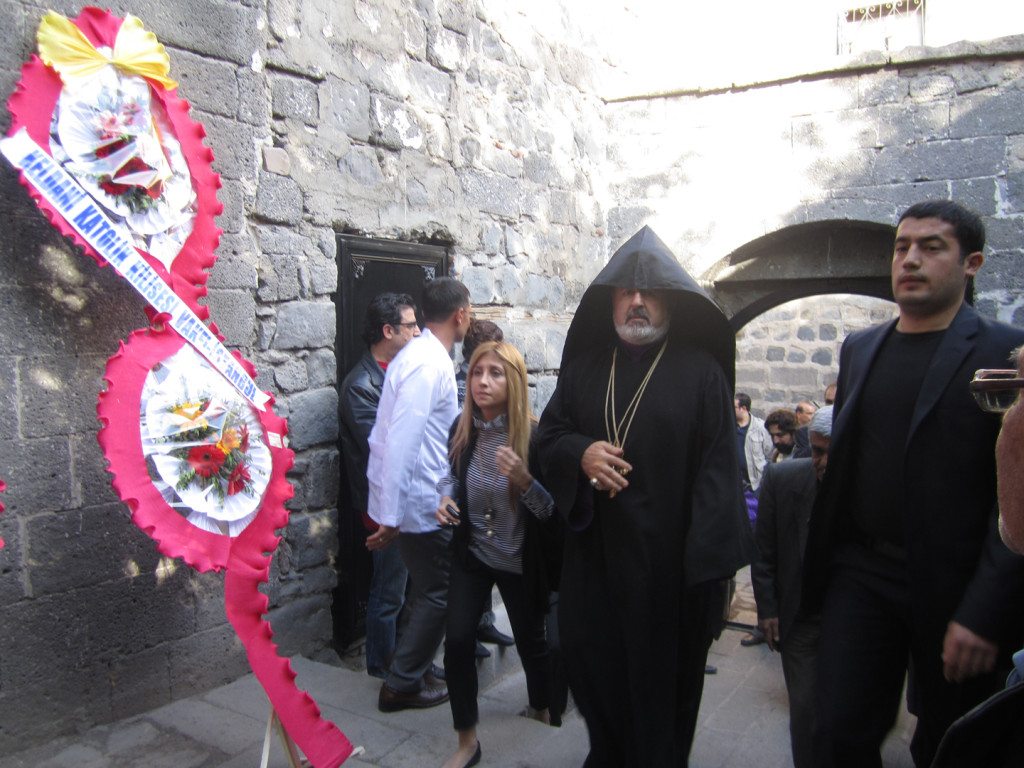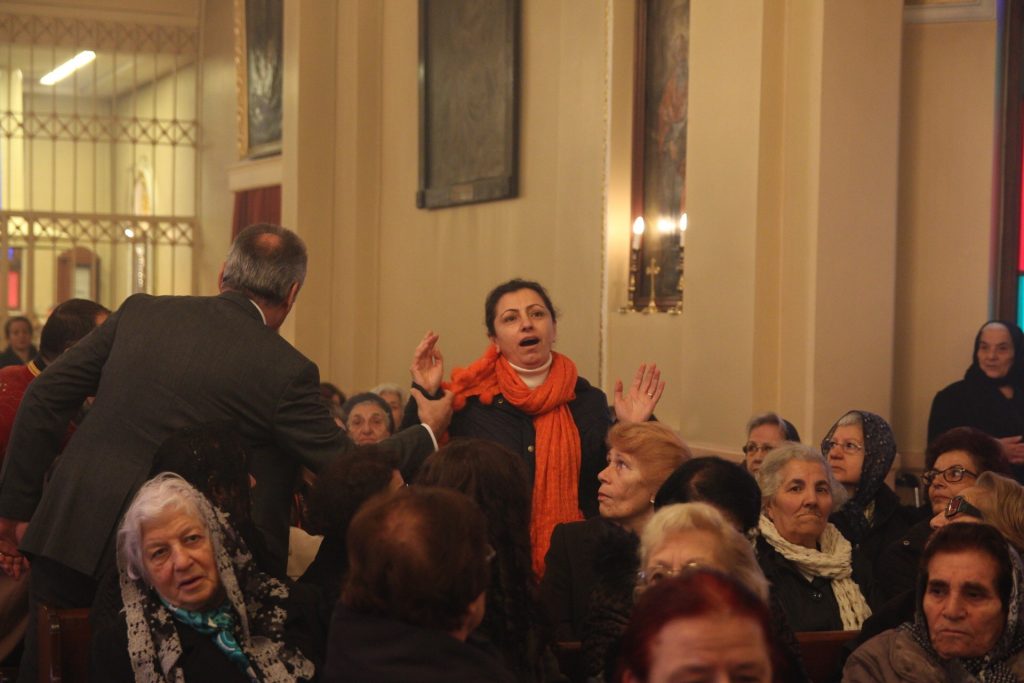Special to the Armenian Weekly
The neverending manipulations and power games at the Istanbul Patriarchate took a turn for the worse this past week.
In 2008, the Istanbul Patriarch, Archbishop Mesrob Mutafyan, was diagnosed with dementia—a disease that has incapacitated him and effectively put him into a vegetative state. The cleric next in line at the Patriarchate, Archbishop Aram Ateshian, was appointed the Acting Patriarch at that time, with the expectation that unless Patriarch Mutafyan miraculously recovered, elections would be held to decide a successor.

For the past nine years, Acting Patriarch Ateshian had resisted all attempts of the Istanbul Armenian community, other Patriarchate clerics, and even the Etchmiadzin Catholicos, to hold the elections. Finally, in March 2017, Ateshian relented to the Religious Council of the Patriarchate’s request to start the election process. Archbishop Karekin Bekdjian of the Diocese of Germany was elected Locum Tenens—a caretaker cleric—until the election of a new Patriarch to replace the ailing Patriarch Mutafyan and the Acting Patriarch Ateshian.
Both Ateshian and Bekdjian were supposed to be candidates in the elections, along with four other eligible clerics. But now, following a meeting with Turkey’s Minister of the Interior and a letter received from the Istanbul Governor, the Religious Council of the Istanbul Patriarchate has declared that there will be no elections and that Archbishop Ateshian will continue serving as Acting Patriarch until Patriarch Mutafyan dies.
Archbishop Bekdjian has since resigned and is on his way back to Germany.
How is all this possible? Ateshian is favored by the government of Turkey, which, from day-one, considered the election process and the selection of the Locum Tenens null and void, even though the process for the community to freely elect their religious leaders is clearly spelled out in the legal authority of the Istanbul Patriarchate and the Lausanne Treaty defining the legal rights of the minorities in Turkey.
The Turkish government—and the country’s authoritarian President Recep Tayyip Erdogan—interprets the laws as it pleases. And, in Turkey, that “interpretation” is all that counts.

Archbishop Ateshian once proclaimed that he was proud to call President Erdogan his brother. Ateshian was also a fierce critic of Germany’s passing of an Armenian Genocide resolution in June 2016. The Archbishop even wished Erdogan success in starting the Afrin invasion in Syria, which has killed numerious Kurdish (and some Armenian) civilians. It is natural that the Turkish government will interfere to the benefit of an Armenian religious leader so much in line with its priorities.
There have been two occasions during which I had the chance to communicate directly with Archbishop Ateshian. The first instance was when I planned to perform a piano concert at the then-newly reconstructed Surp Giragos Armenian Church in Diyarbakir, during the Centennial Commemoration of the Armenian Genocide in April 2015. As part of the concert program, in addition to my performance of Armenian composers, I had proposed to invite a well-known Armenian and a Kurdish opera singer to present songs of Komitas, a noted victim of the Armenian Genocide. Archbishop Ateshian opposed the idea of the concert in “his church” and suggested that I hold the concert somewhere else in Diyarbakir. At the end, the concert did take place in the church, in the presence of more than 1,000 attendees, including elected officials, local Kurds and Turks, and—perhaps most significantly—hundreds of hidden Armenians. Instead of the two singers, I ended up playing the Komitas works in the church myself—so meaningful and symbolic, 100 years after the Armenian Genocide.
The other occasion was when my friends and I approached the Archbishop about the thousands of abandoned Armenian churches in Turkey. For a few years in the early 2010s, there was a window of opportunity by an apparently liberalized Turkish government to allow for the return and reconstruction of Armenian churches. The reconstruction of Surp Giragos Church is one example, even though the situation has dramatically worsened in the past two years. However, at that time, there was some willingness by the government to return or restore the churches as our cultural heritage in Anatolia. We even had discussions with government officials on specific churches in Van, Sivas, and Malatya. Unfortunately, Archbishop Ateshian turned down these attempts. “I cannot even take care of the Armenian Churches in Istanbul, what do I need to have more churches in Anatolia?” he said.

I am not sure whether to call this line of thinking shortsightedness or toeing the line of the state. But my intention is not to blame Ateshian or the Turkish government, which sees him as its man. I would like to focus on the attitude of the Istanbul Armenian community, and more specifically its non-religious leaders, who are the elected leaders of dozens of charitable organizations attached to the Istanbul Armenian Churches, schools, and hospitals.
The charitable organizations are all supposed to be under the control of the Istanbul Patriarchate and act in unison. The wealthier foundations, which own large assets, are supposed to help the less fortunate ones. Unfortunately, this rarely happens, and as long as there is no interference from the Patriarchate, most of the leaders, with a few exceptions, treat the charitable organizations as their own personal empires without much consideration for the overall benefit of the community.
The community itself is deeply divided, apathetic, and/or unable to voice any protest, except for a few progressive groups—including the Nor Zartonk movement—and some young intellectuals and activists gathered around the Agos newspaper.
After what happened this past week at the Patriarchate, one would expect the community to organize and take some protest actions against the unilateral takeover by Ateshian. A possible protest could be boycotting the religious services conducted by the Archbishop and instead attending church services at other local Armenian Churches.
Of course, the church in which he presided over Mass this past Sunday was completely full. There was only one Armenian lawyer among the crowd who dared to protest—she sang aloud the prayer “Der Voghormia” out of turn. According to Agos, she was removed from the church upon instructions from Archbishop Ateshian, arrested by Turkish authorities, and taken to a police station. She was released after being held in detention for about an hour.

As the saying goes, people get the leaders they deserve. While we lament and complain and protest against the unfair treatment of Armenians by other nations, we should also recognize our own weaknesses and do something about them.
***
Editor’s Note: Archbishop Aram Ateshian’s last names is spelled “Atesyan” (an English rendering of the Turkish spelling Ateşyan) in several sources, including in some previous articles in the Armenian Weekly. Henceforth, we will employ the spelling that appears in this article.


Thru out our history of Armenia our clergies have been naive ,stupid and uneducated,thinking that they are priests they think of themselves beeing the kings of Armenia and that everybody have to listen to them. During Vartan Mamikonian it was a clergy that convinced Vartan to wage war against a 100 000 persian soldiers,and what happened we got destroyed and lost our lands just for a useless religion we became slaves to the Persians.Then during the Kingdom of Ani, it was again an armenian clergy who betrayed our king and gave the secret passage into the city to the Byzantium army to destroy the city.In 1915 it was again our clergy who listen to the Turks and had every one in the villages who were ready to fight and protect their family to give up their guns to the Turks and then we got cut up like a bunch of chikens .I am sorry to say but many of our armenian priests have betrayed us thru out history.
Your historical facts are incorrect…Vartan Mamigonian waged war to keep our identity alive who only less than 50 years before started its Golden Age with our alphabet.
In 1915 clergy were the first to be slaughtered so much so there were only 2 bishops left from the house of cilicia and practically no clergy left to even inaugurate a new catholicos.
Clergy in small numbers throughout our history were responsible for our nations identity such as mesrob mashdots and Khrimian hayrig, der vartan during Khanasor and ghevond yerets during vartanank…the recent clergy i’m not to thrilled about I agree…but dont put all rotten apples along with the good ones to spoil them all.
Thank you for your report,although it is bad news in many ways, it is news and that is better than a vacuum.
It is difficult to live under tyranny and remain hopeful but one lone voice in that church may light many beacons.
So, what is the ARF doing to foster democracy within the Armenian community in Istanbul? On one page of the Weekly we read that the ARF is engaged in showmanship, attending the HDP conference, to show its solidarity with that party to foster democracy in Turkey. Here,the Weekly,publishes an Op Ed on the lack of democracy in the process to elect a new patriarch. The ARF remains a powerless opportunistic clique of wannabees.
Armenian priests are one of the main reasons for our homeland’s current state. They have always been davadjan!
“In 2008, the Istanbul Patriarch, Archbishop Mesrob Mutafyan, was diagnosed with dementia”— I read in an article where this affliction was “sudden”. I don’t remember hearing about medical help or what has happened to him. Did he die?